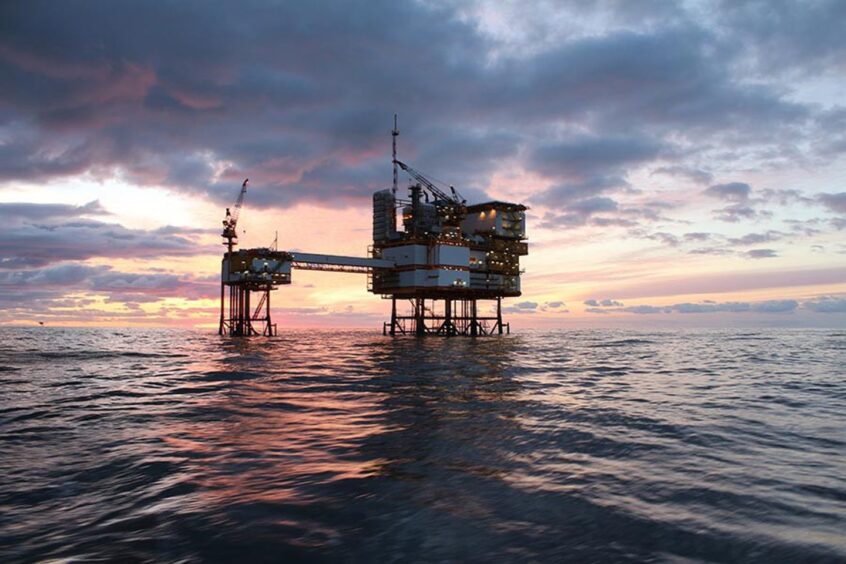
There is only one phrase that can possibly be used to describe the Westminster government’s approach to oil and gas – ideological zealotry, bordering on madness.
There is a belief in the righteousness of what they are doing.
A failure to truly understand what this means.
A feeling that companies are bluffing when they say they will leave (spoiler alert – they aren’t).
A bizarre sense that we can change to renewables overnight, without destroying the local economy, and that the world will follow our righteous lead (spoiler alert number two – they won’t).
Many look at the secretary of state for energy security and net zero, Ed Miliband, and claim he is the major advocate for this policy.
He may well be. But the approach is more than ably supported by the prime minister and a chancellor of the exchequer who seem to think the oil and gas industry is a cash cow to be milked to solve the country’s financial problems (spoiler alert number three – it isn’t).
What the government proposes matters.
Commercial decisions are being made on the basis of that (see reports that Harbour Energy are looking to sell their North Sea assets).
Confidence in the north-east is rattled as companies move their activities to other global markets.
The UK’s energy security is going to be affected – leaving potentially billions of barrels of oil in the ground whilst we import (at significant costs – environmental and financial) from other countries.
A significant plank of the government’s approach is based on climate change and the need to reach net zero.
Let me be clear that I believe climate change is real and needs to be addressed.
There needs to be a move to alternative sources of energy.
However, that transition needs to be ‘just’, and it simply doesn’t feel very just at the moment.
Much of the existing oil and gas supply chain will, ultimately, service renewables.
However, they need to bridge the gap between focussing on oil and gas and renewables actually coming on stream to be serviced.
That work simply doesn’t exist at the minute and it is not realistic for companies to be expected to maintain a presence and skilled workforce in the north-east until it does.
They are going to go where the work is.
Others around the world either simply pay lip service to climate change, or understand the importance of ‘just transition’.
Meanwhile, skills and people disappear from the north-east as the UK Continental Shelf (UKCS) becomes impossible to operate in.
Whilst it is noble and honourable that the government thinks others will follow our lead, it simply isn’t realistic.
Our leaders continue to have an inflated view of our position in the world.
Plus, when it comes to energy, most countries of importance will do what is right for them – especially when we face such global uncertainty.
It seems unfathomable to me that at a time when our energy security is threatened we should push so hard to abandon an industry which could help us.
The government talks about how oil and gas will remain part of the UK’s energy mix for many years to come.
That oil and gas is, however, going to come from overseas.
From countries that may be friends now, but might not be forever, who will seek to extract every single bit of commercial advantage for it.
Where is the energy security in that?
In the Press & Journal of 21 October, Malcolm Webb (ex-head of Oil and Gas UK) was reported as saying what was happening was “gross negligence” on the part of the government, based on “misunderstandings and miscomprehensions”.
The Aberdeen and Grampian Chamber of Commerce (AGCC) have reported that increasing the Energy Profits Levy (EPL) was having a ‘chilling effect on the sector’, putting 100,000 jobs at risk.
Whether it will bring in the money government thinks it will is also open to question with Rystad Energy being reported by the AGCC on 23 October as saying that some £4.9bn of the £10.8bn the Government thinks it will raise could be at risk if developers stop activity or walk away from the UK. Some cash cow.
Meanwhile, the Scottish Labour Party net zero spokesperson, Sarah Boyack, presumably doesn’t see the irony in her words:
“Scotland’s energy industry is one of our key economic assets but years of neglect by the SNP and Tories has left it in a precarious state. For too long, oil and gas workers have been let down by two governments with no plan for the future, but Labour will secure Scotland’s place as a clean energy superpower.”
With all due respect, and whilst there is no doubt both the SNP and Tories did cause damage to the energy industry, the reality is that the Labour government risks decimating it – and once again it will be the people of Aberdeen and the north-east who will suffer the most.
What thanks is that for having driven economic prosperity in the UK over the last 50-odd years?
Greg Quinn is a former British Diplomat who has served in Estonia, Ghana, Belarus, Iraq, Washington DC, Kazakhstan, Guyana, Suriname, The Bahamas, Canada, and Antigua and Barbuda in addition to stints in London. He now runs his own consultancy business: Aodhan Consultancy Ltd
Recommended for you

 © Supplied by Aodhan Consultancy L
© Supplied by Aodhan Consultancy L